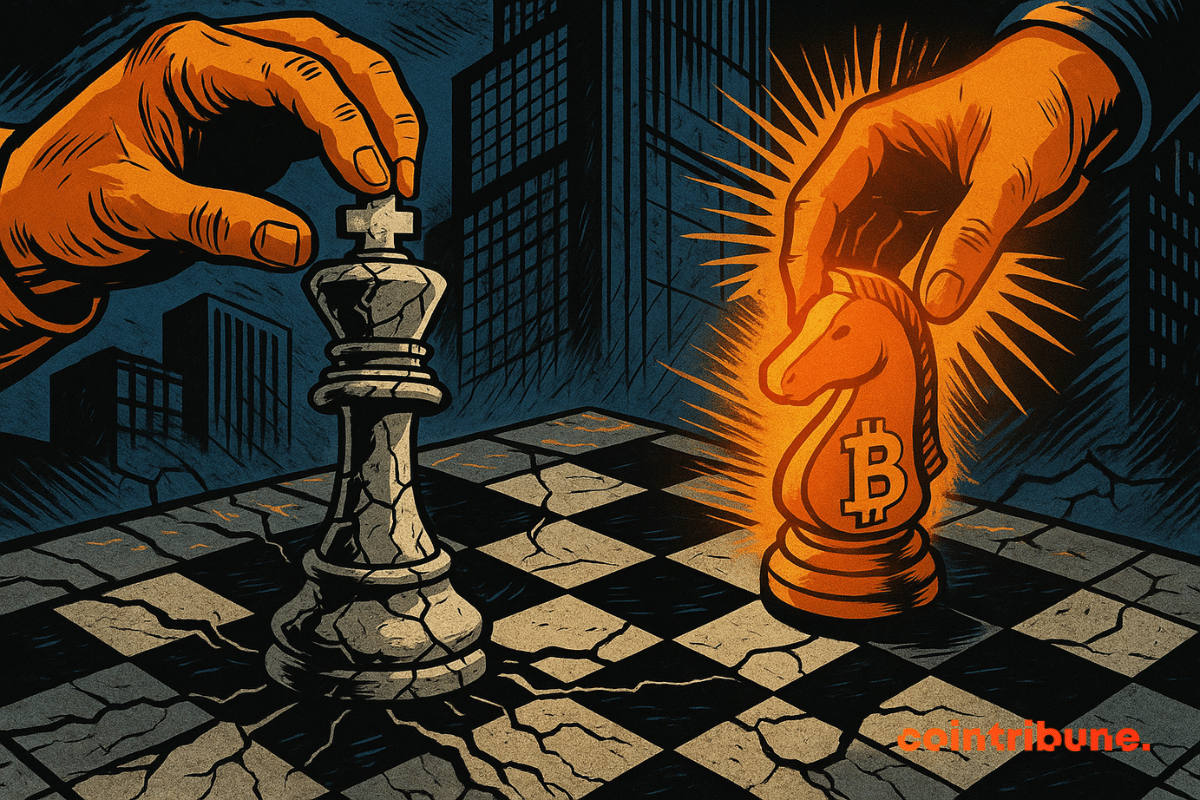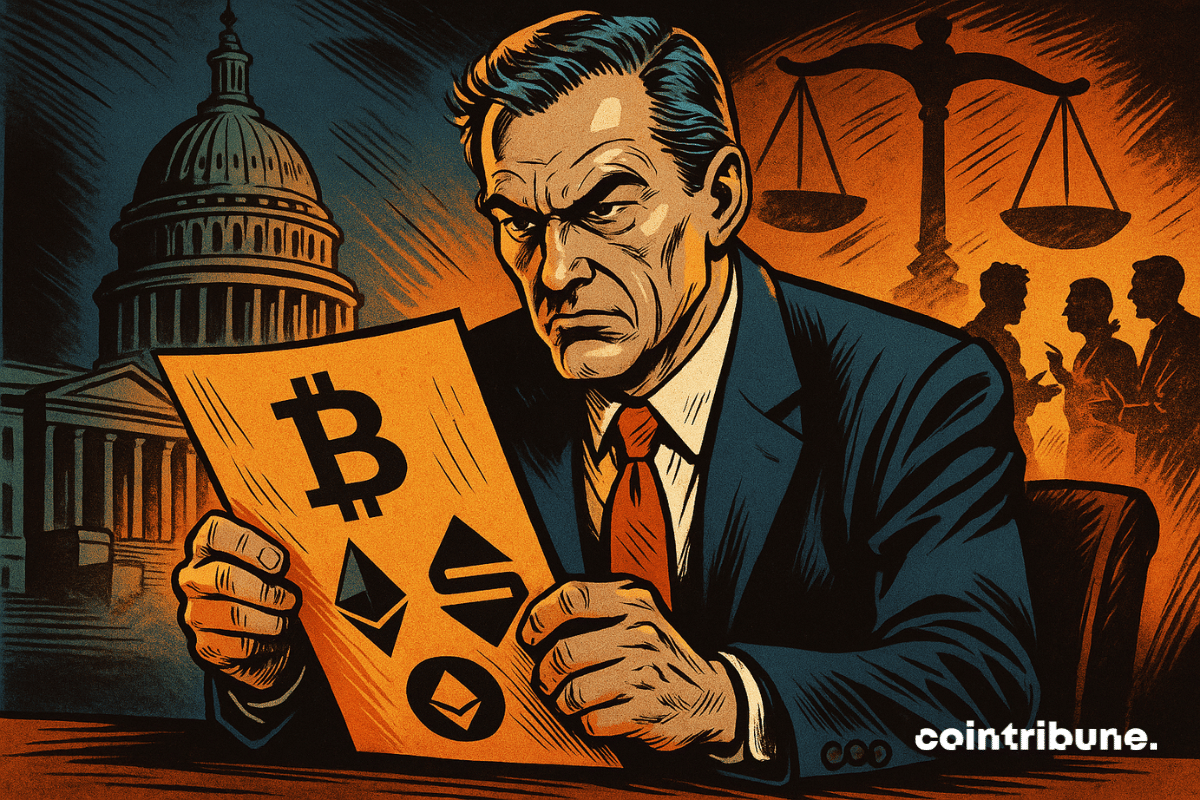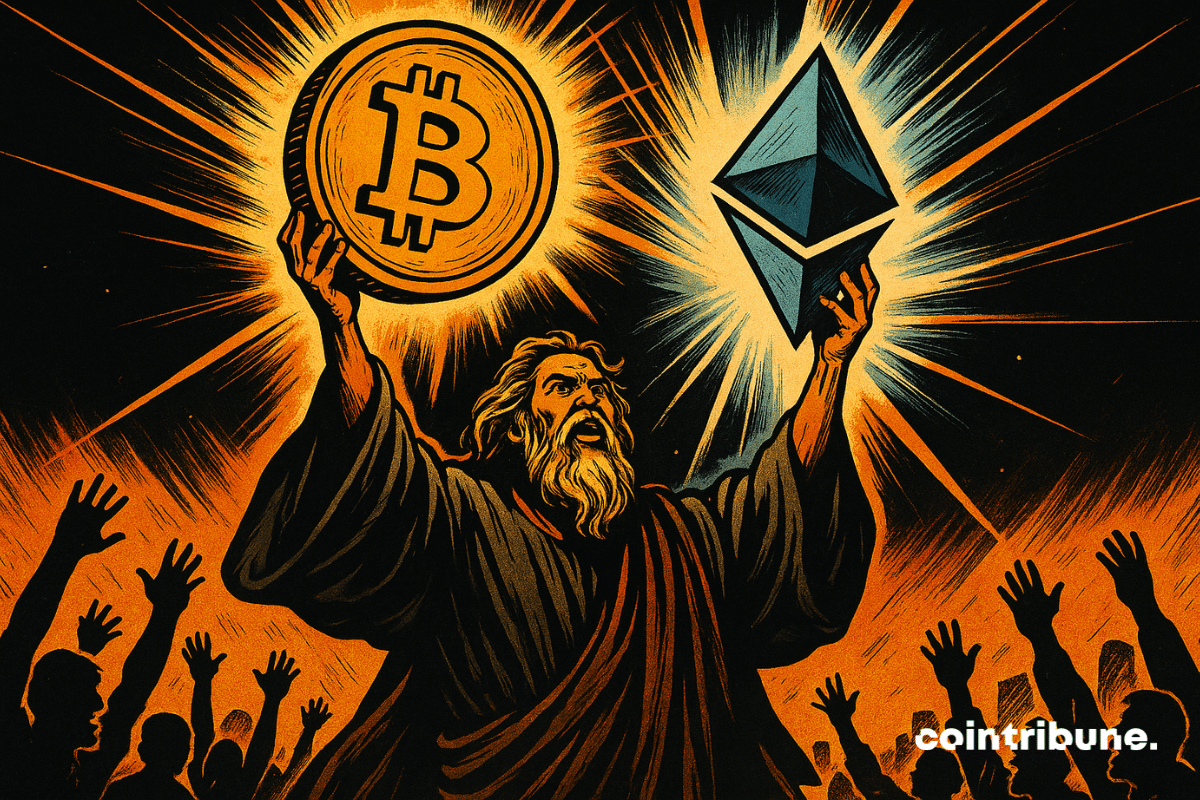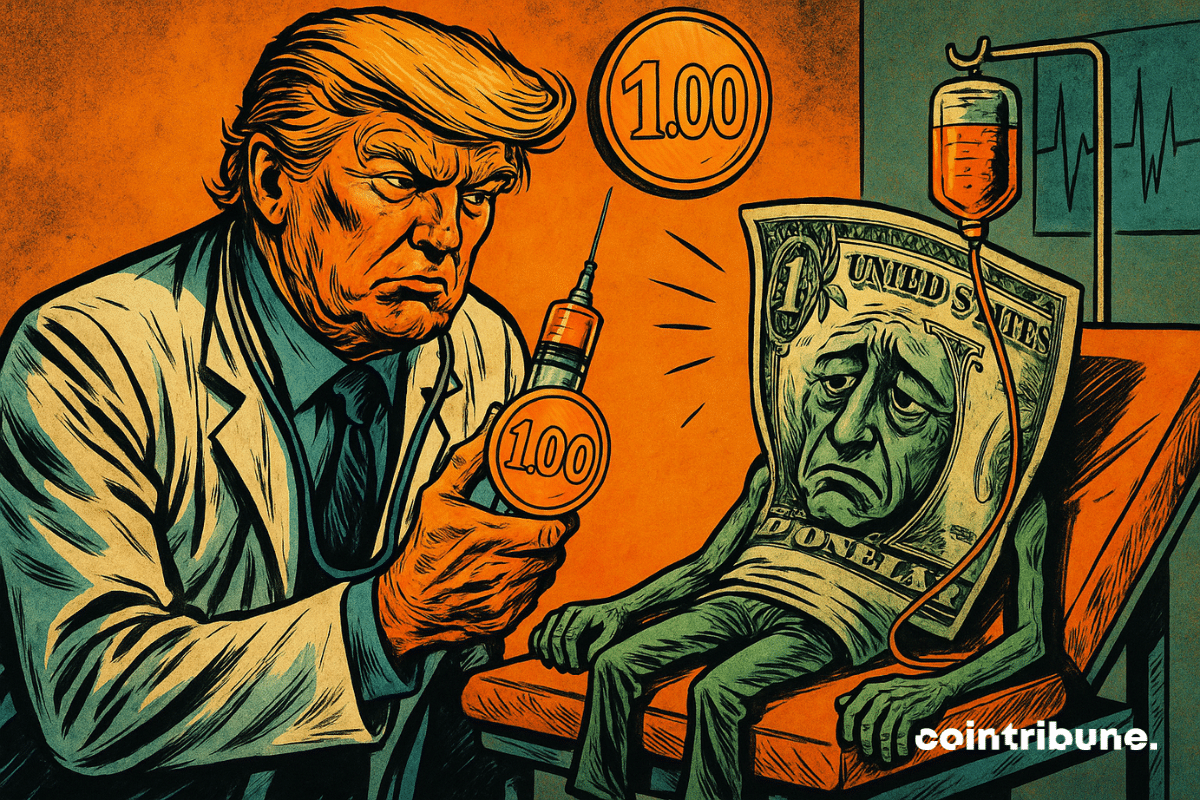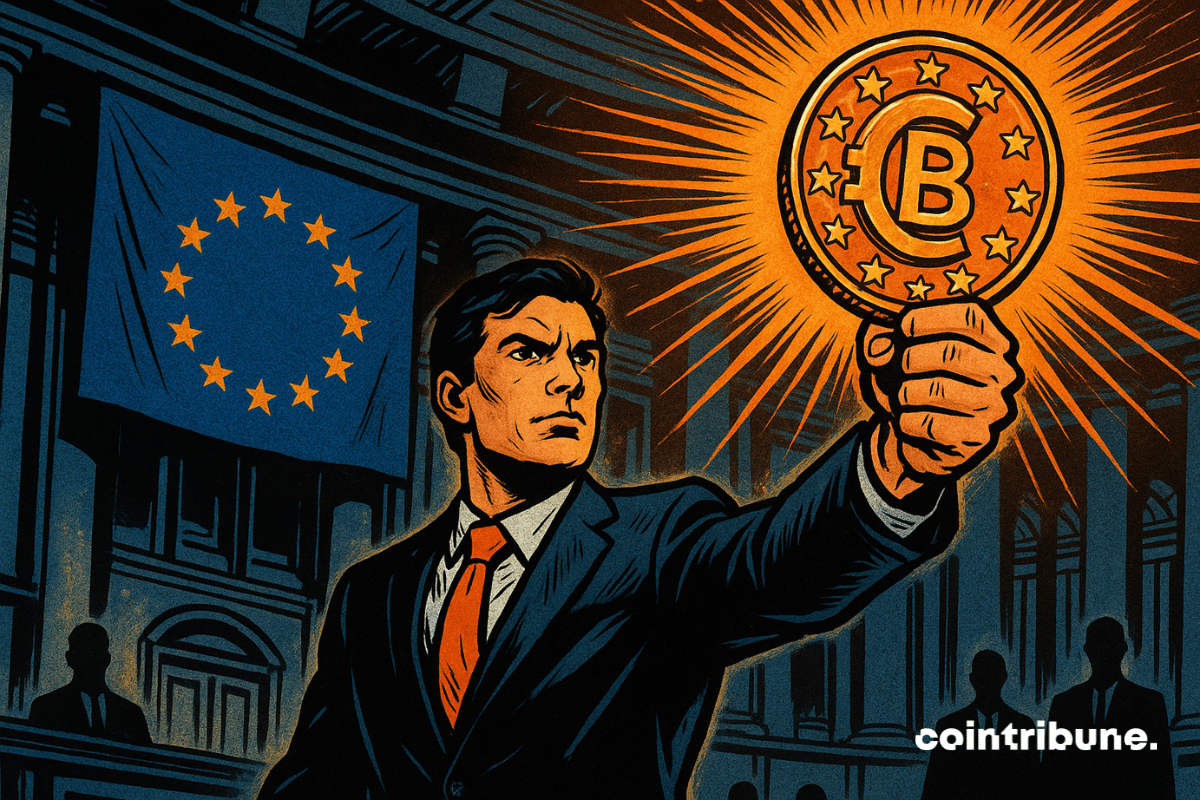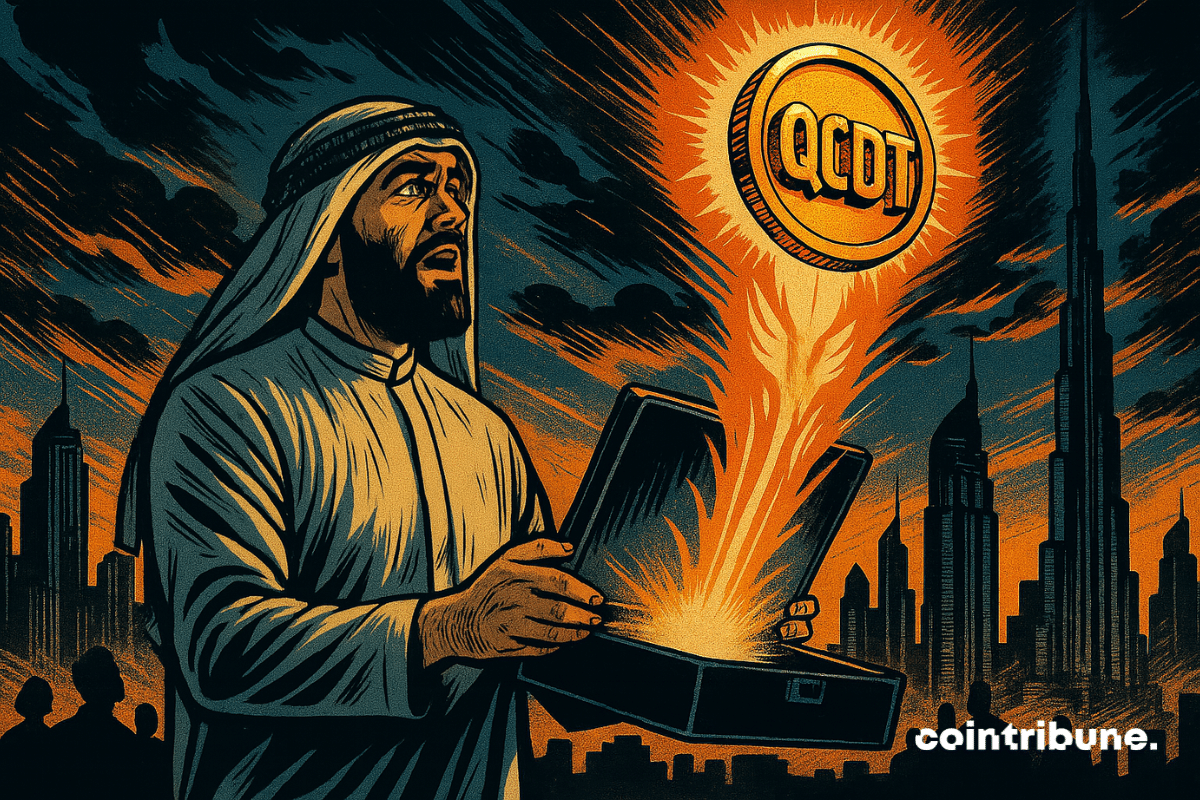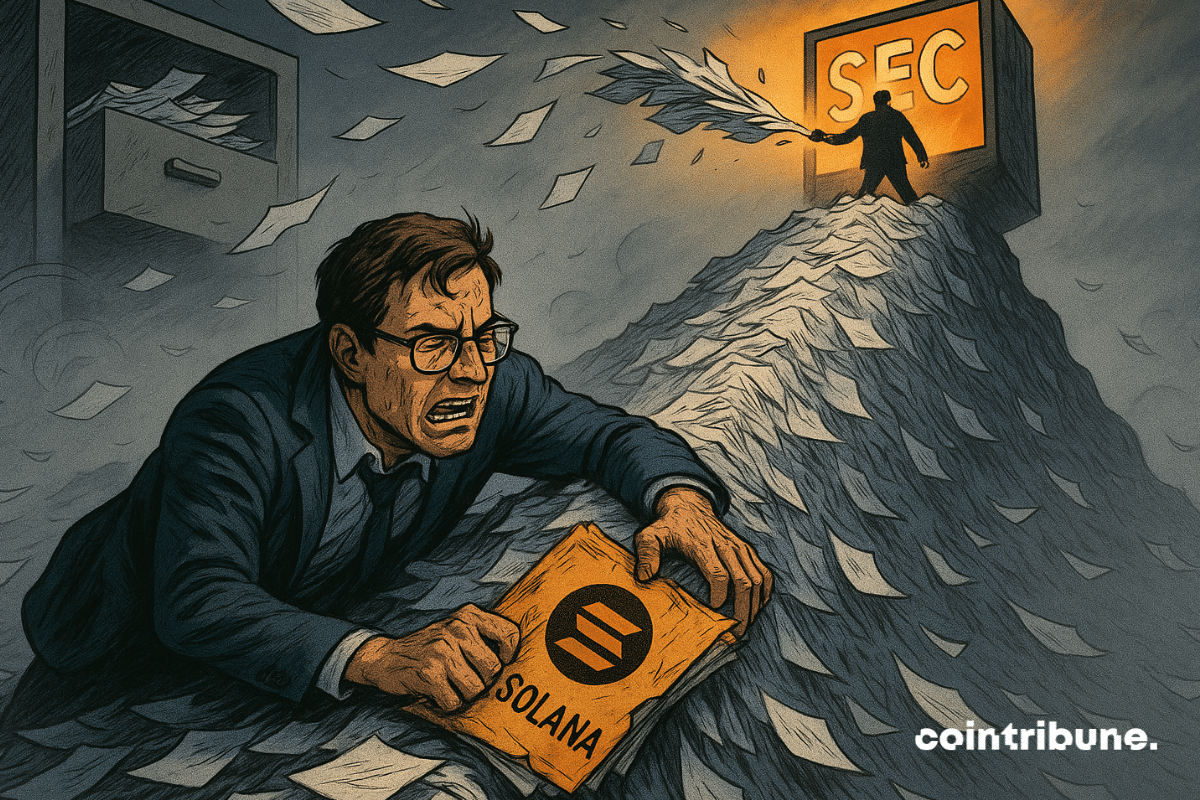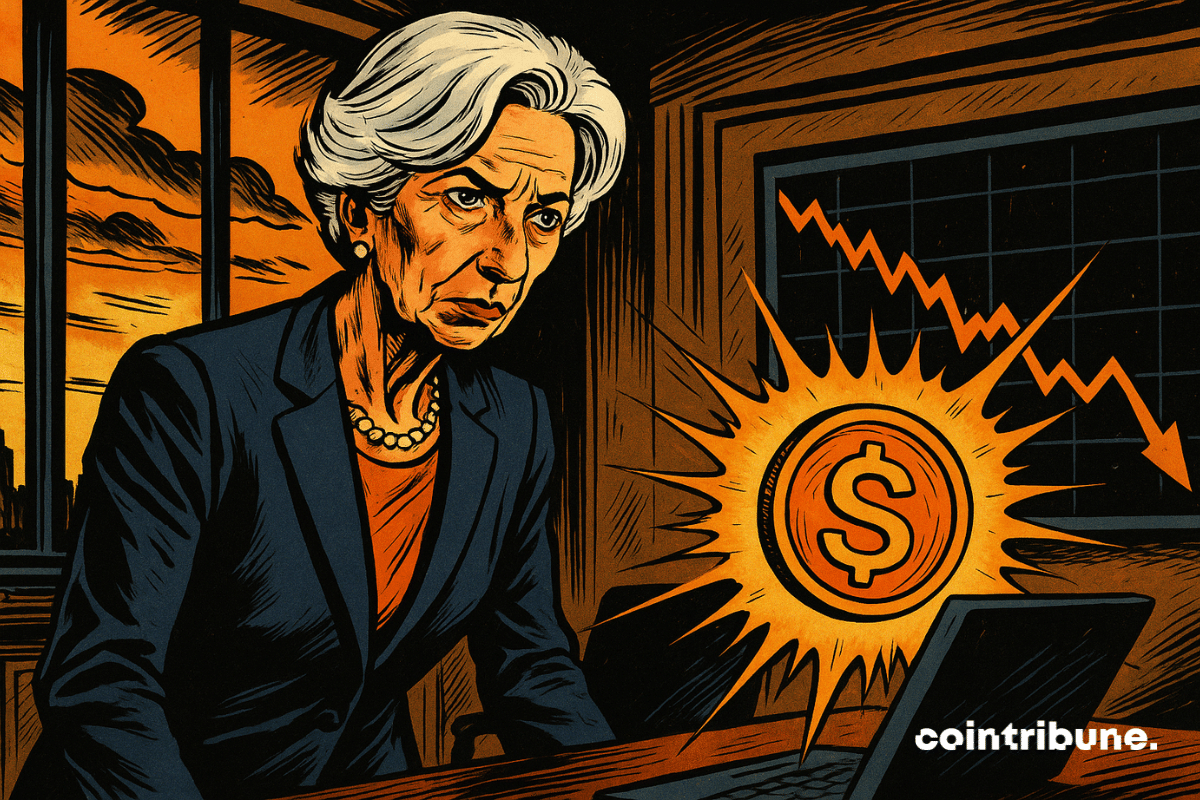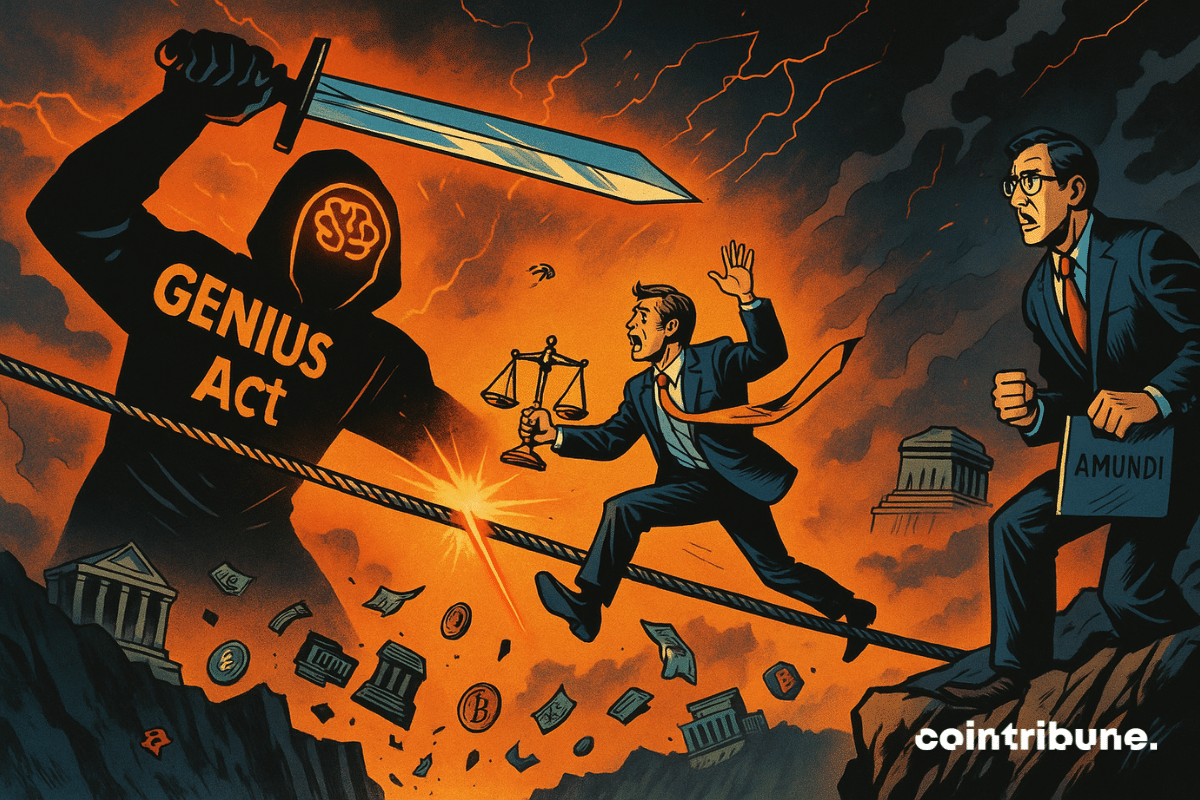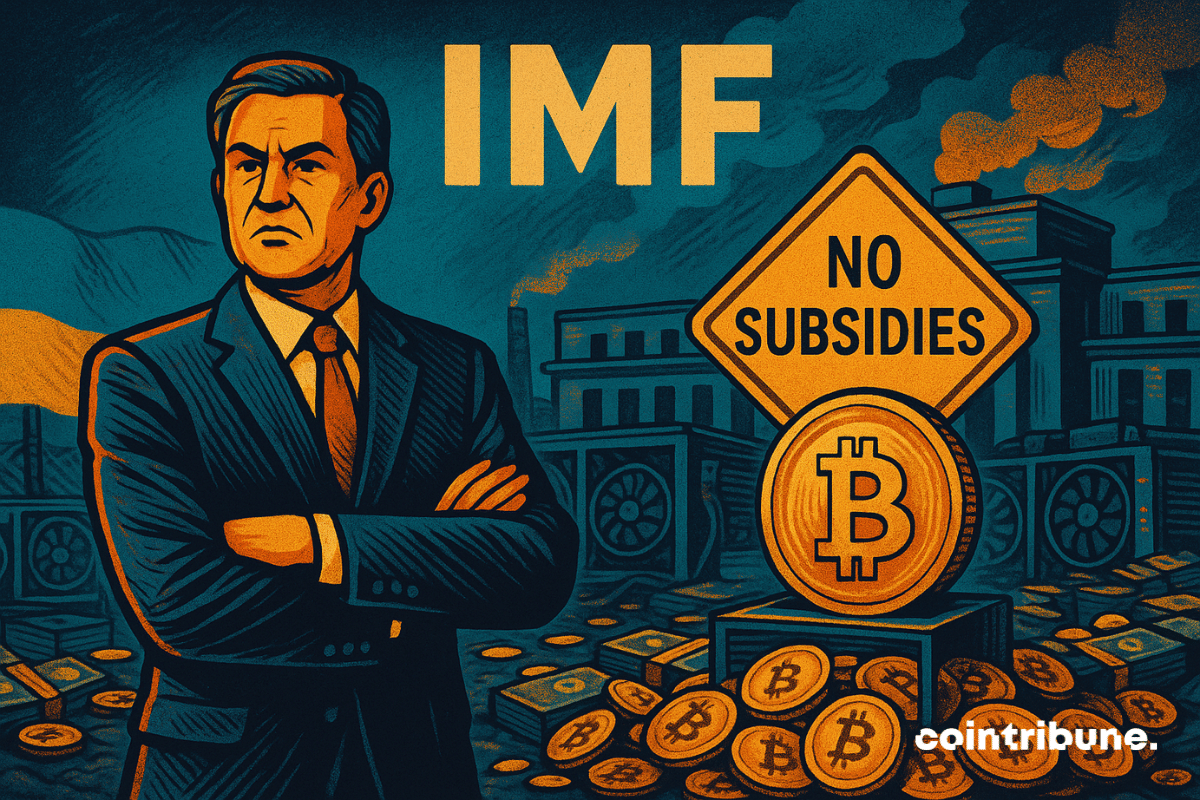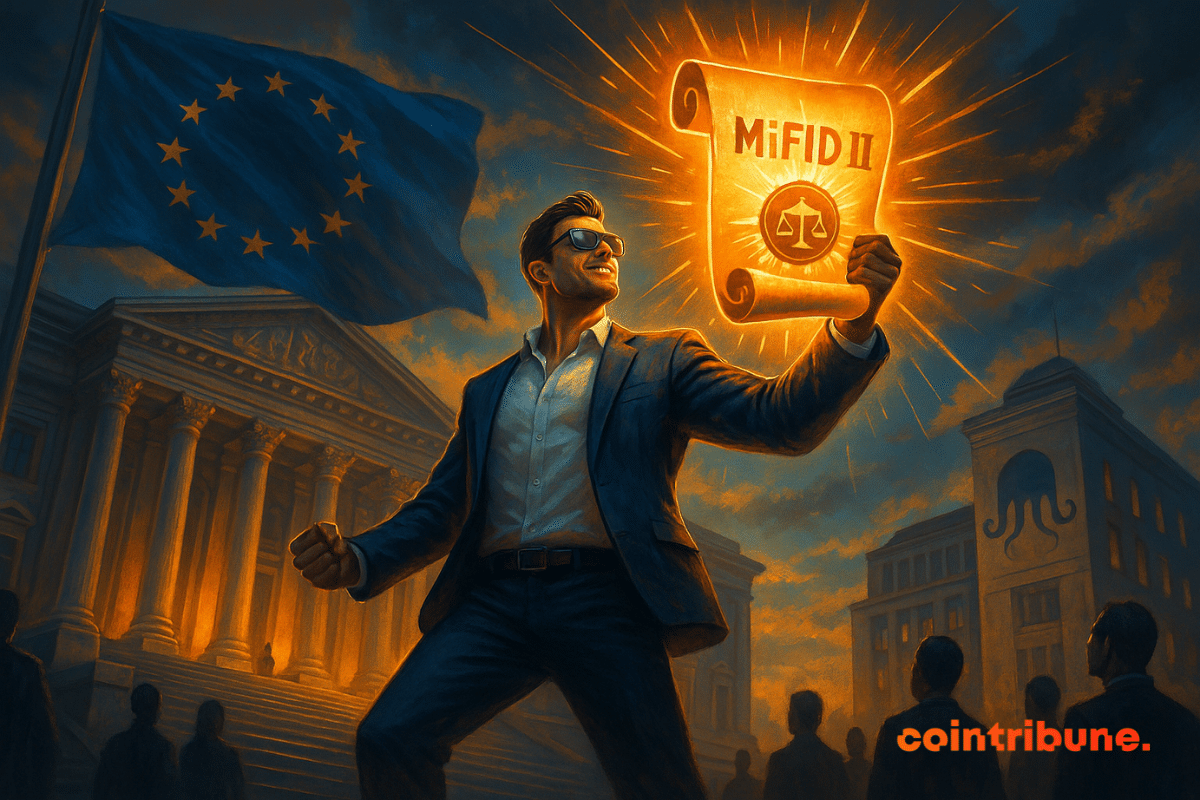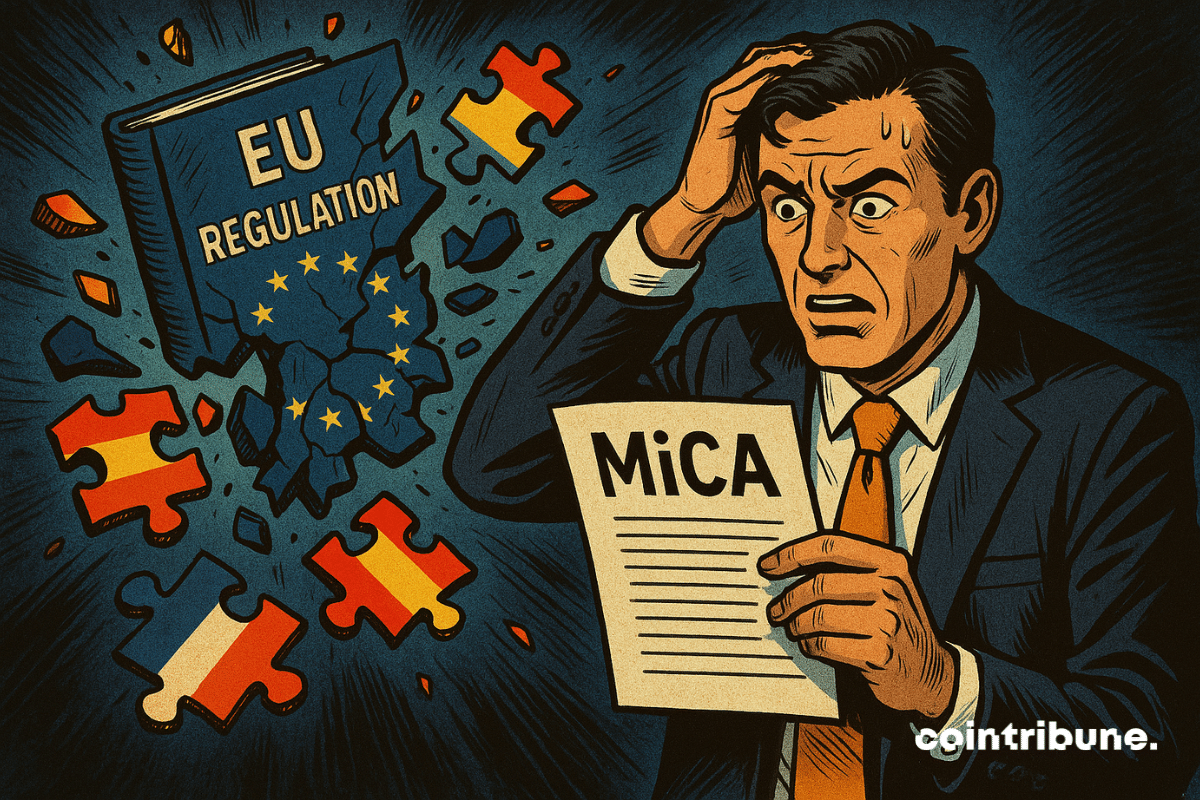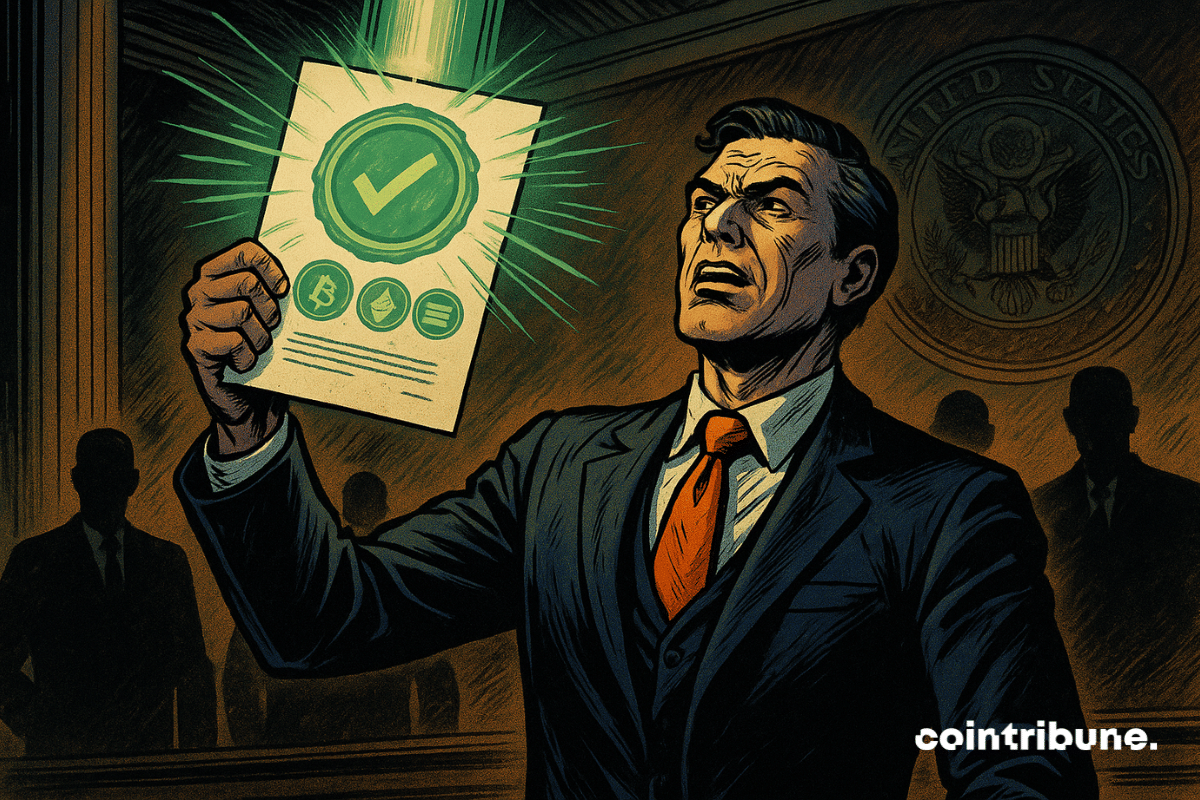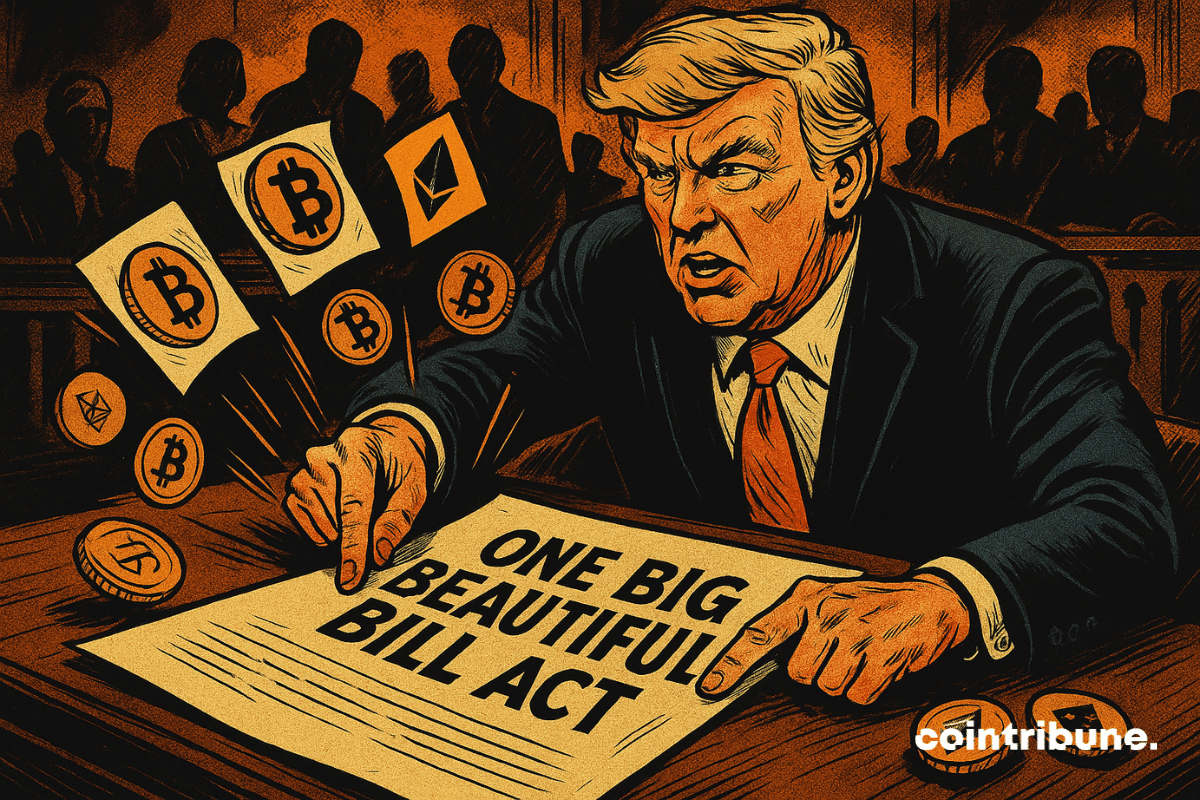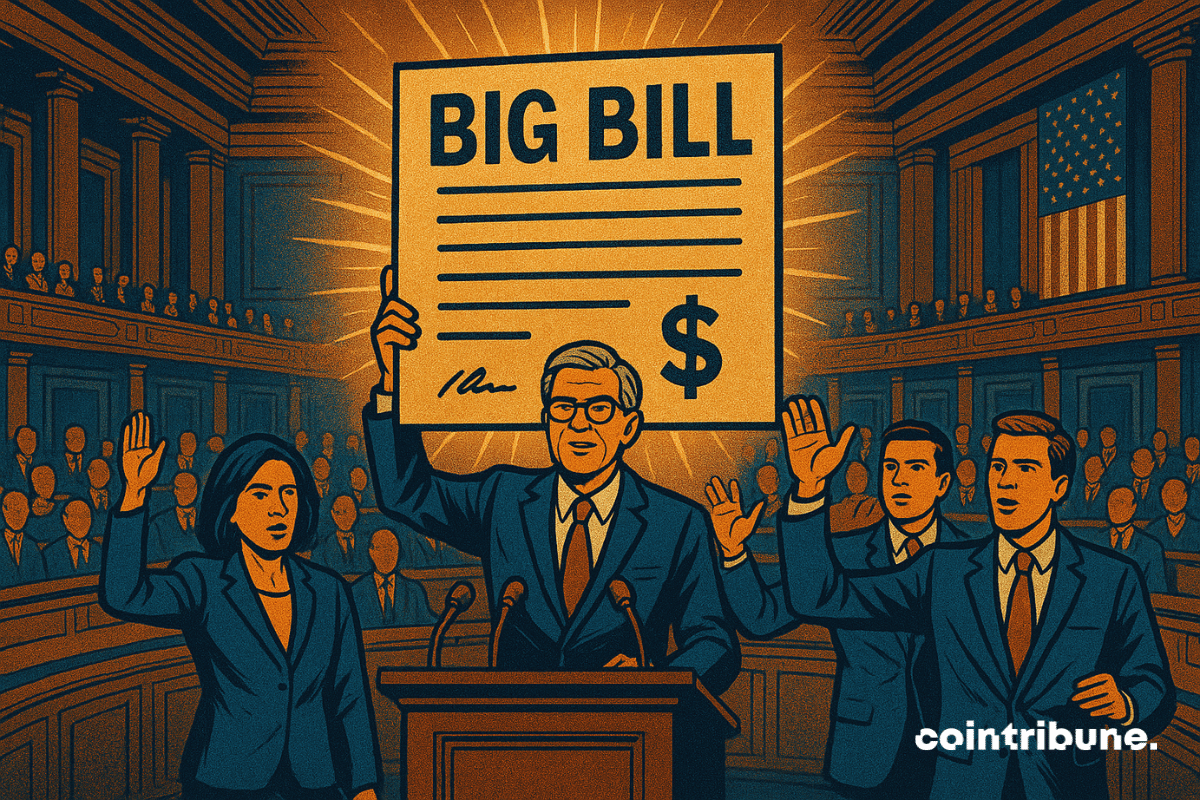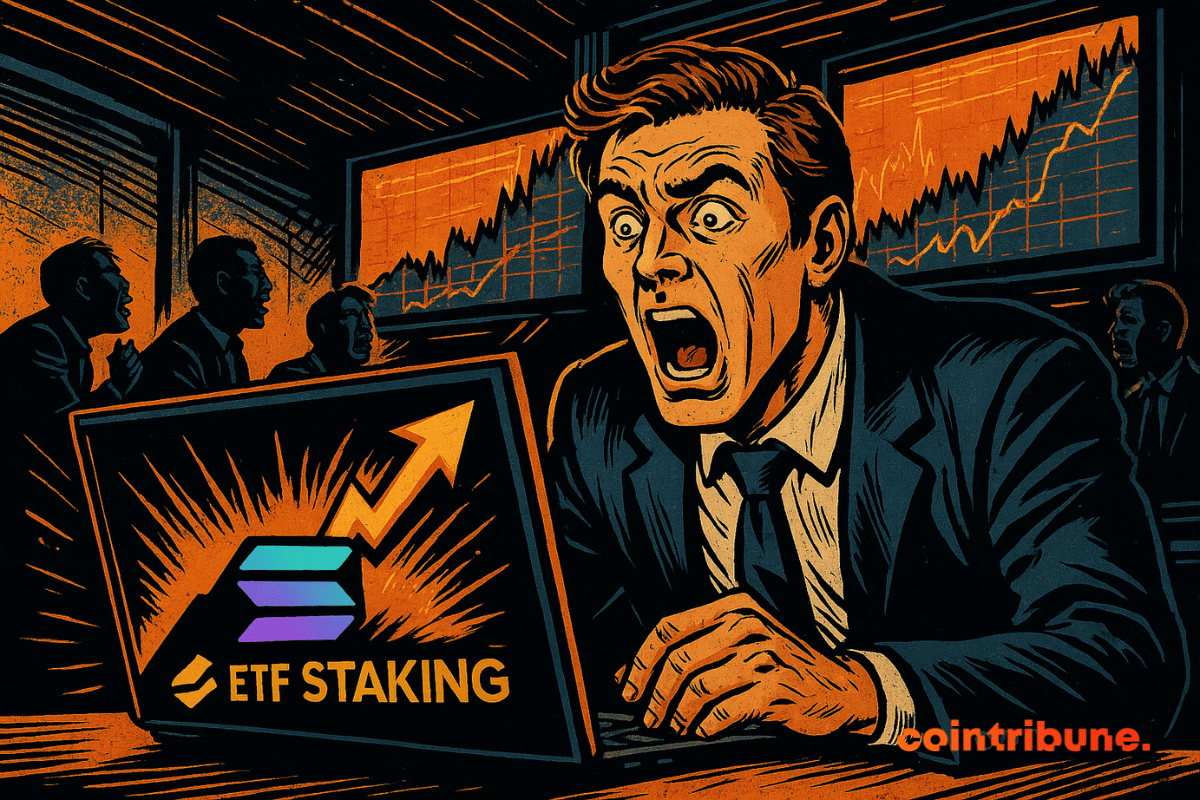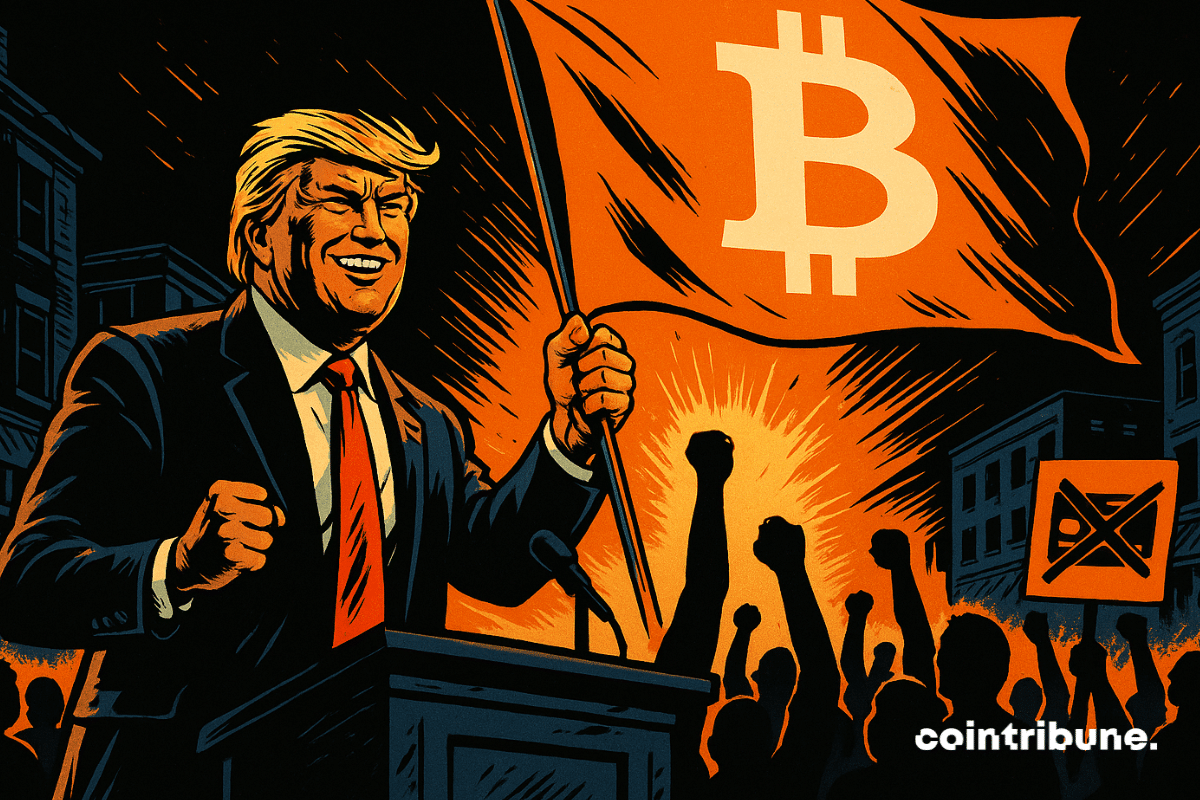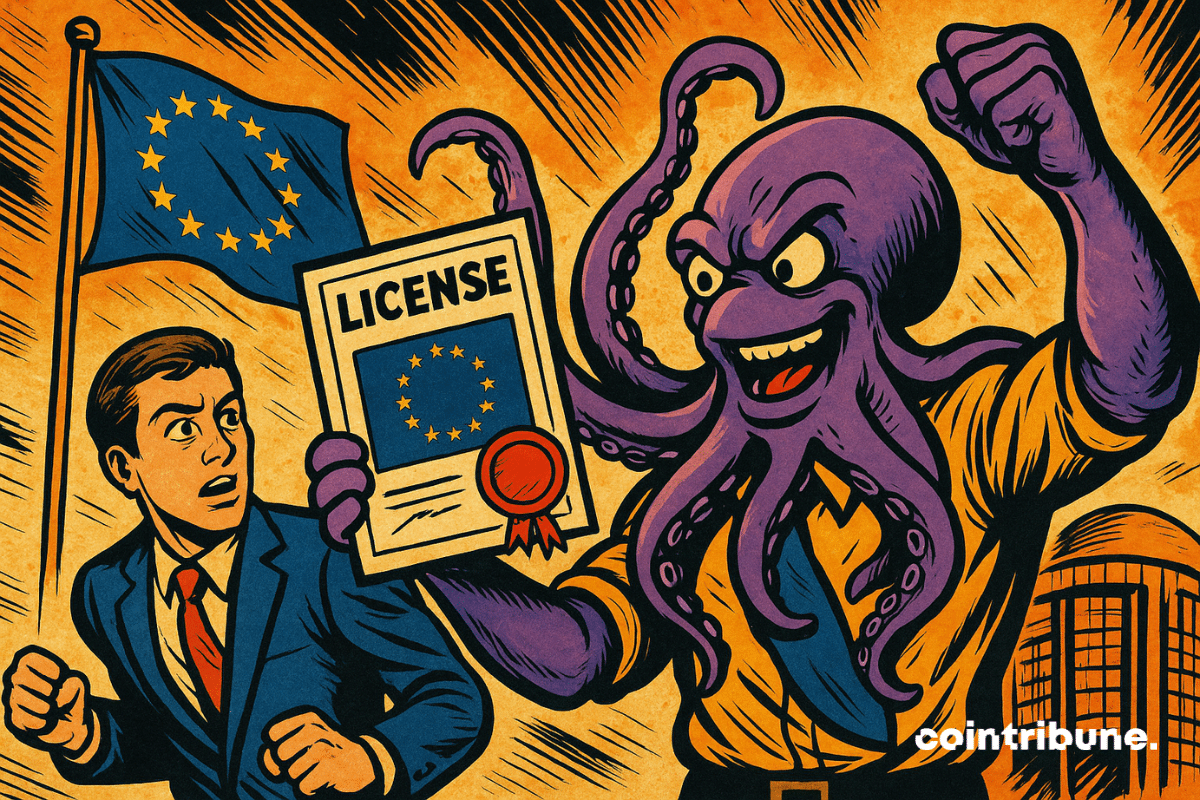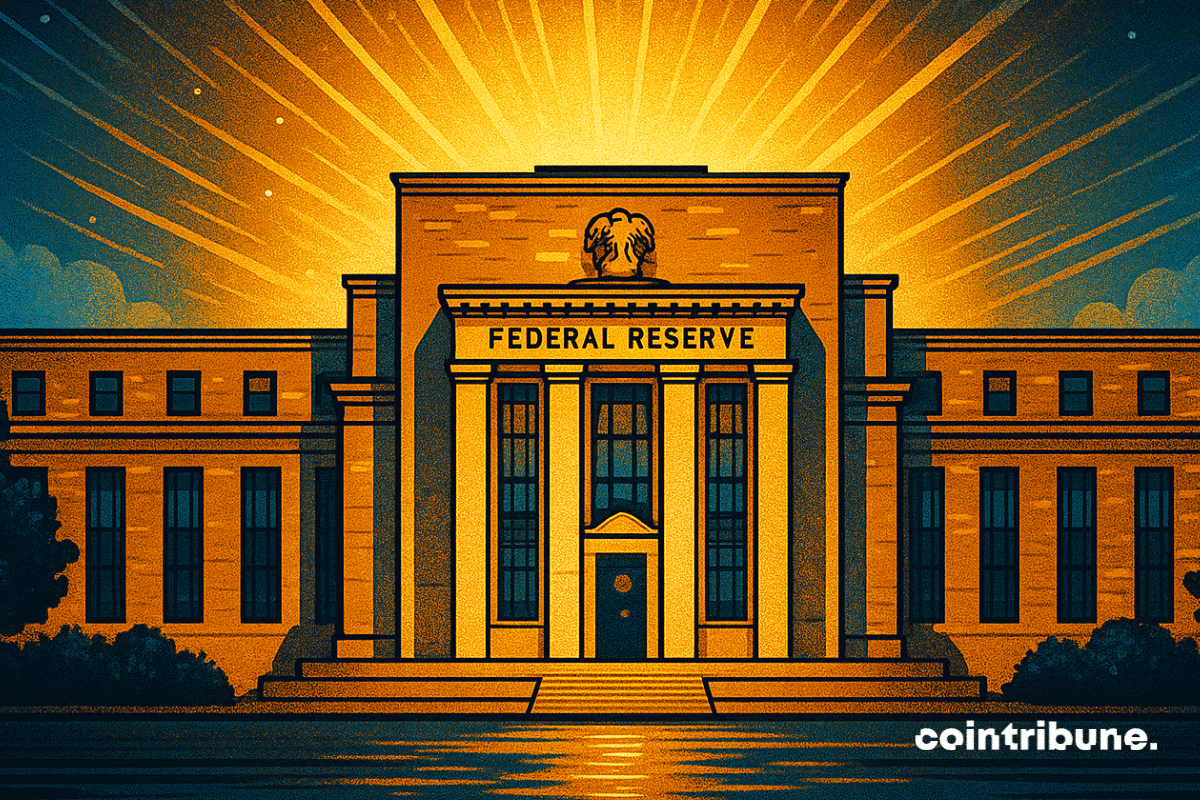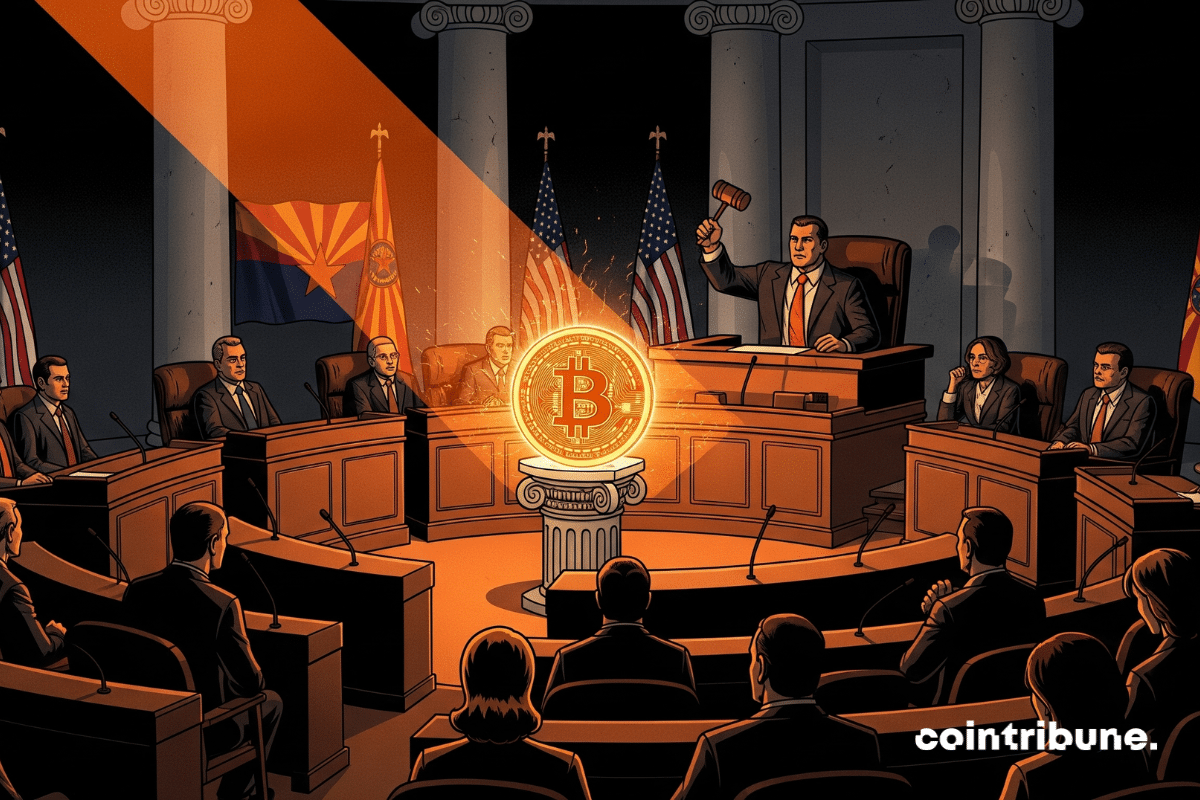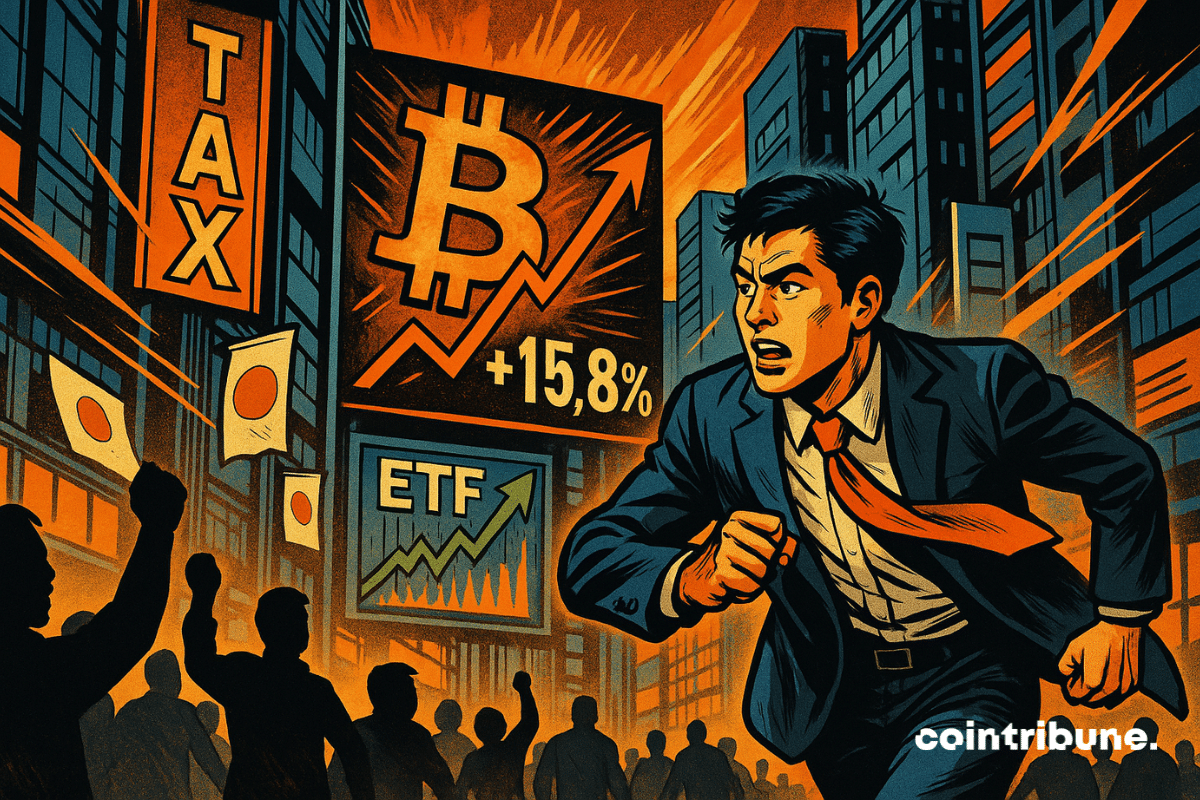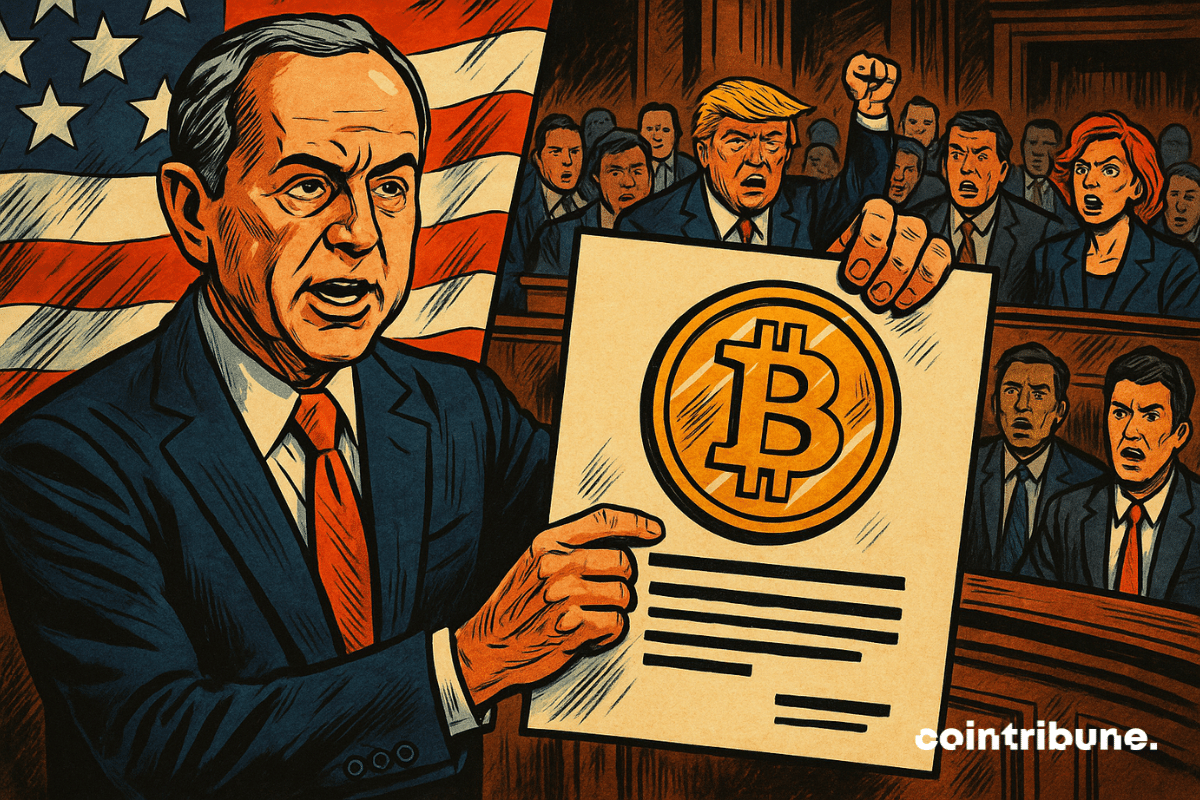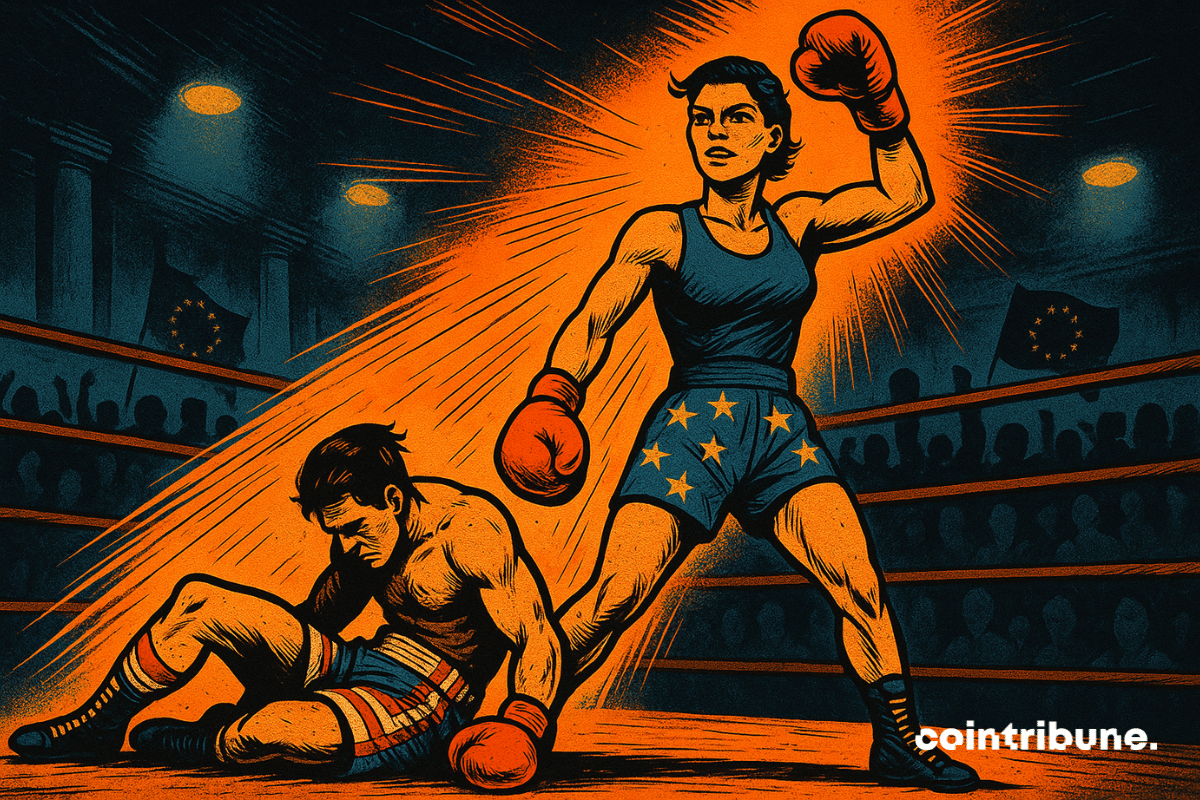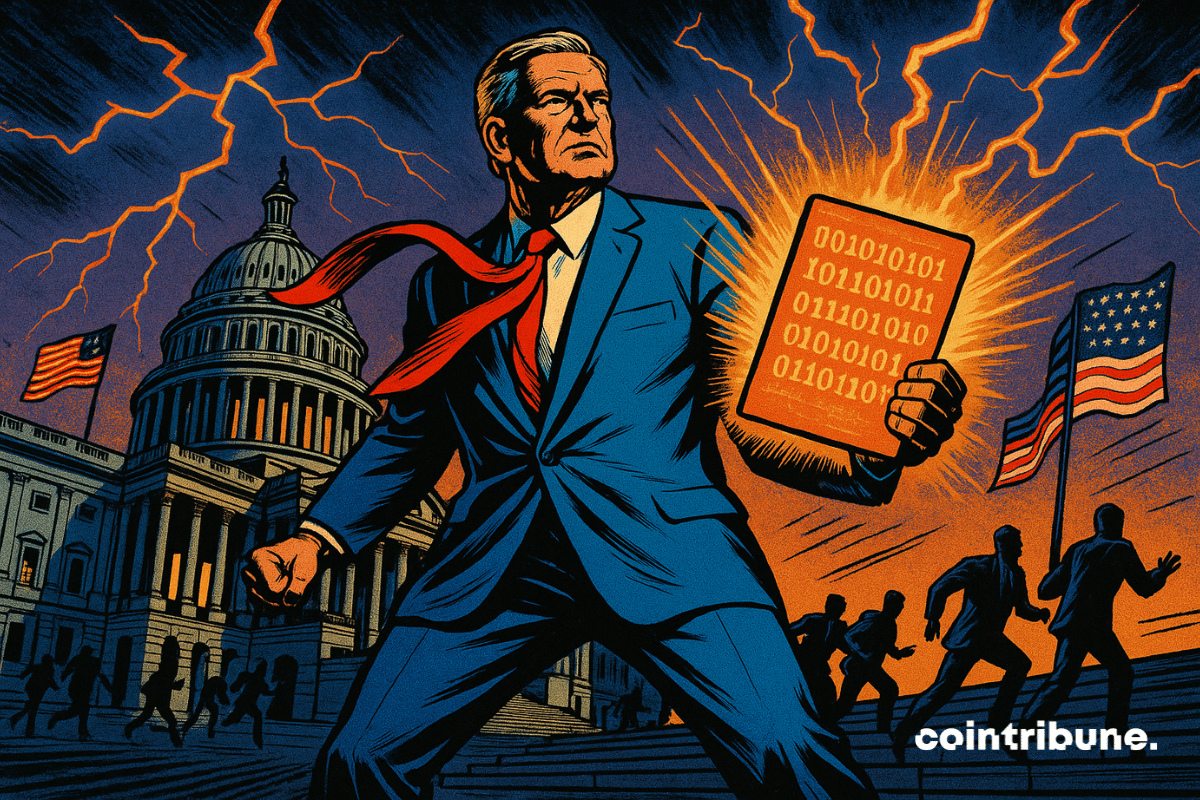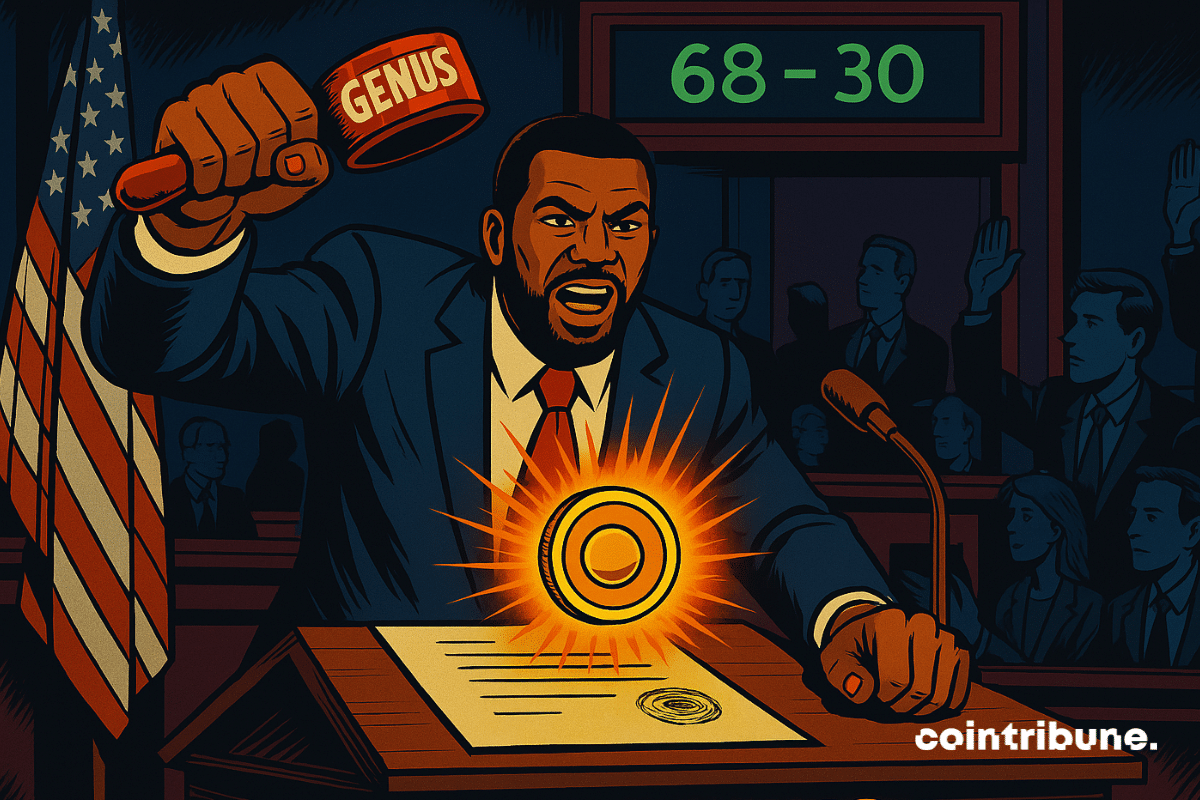While Wall Street counts its points, Bitcoin takes the prize, ridicules the S&P 500, and shoots at full speed into the coffers of a stunned BlackRock. Who would have believed it?
Theme Crypto regulation
Crypto is at a crossroads. Under the cold neon lights of the Capitol, the fate of a digital world is being decided with ink and calculations. Starting from July 14, Washington begins its "Crypto Week": a decisive parliamentary sequence where three major bills will be debated. Three texts, three possible directions for the future of digital assets in the United States.
When ETFs fill up like broken pockets and bitcoin breaks through the ceiling, traditional markets wonder: have cryptos become acceptable to the suit-and-tie crowd?
"While the dollar plays the tightrope and Trump brandishes his tariffs, Washington unveils a crypto-crutch: stablecoins, a techno remedy or a digital mirage of a wavering empire?"
Vienna, July 10, 2025 – Today’s press conference marks the formal introduction of Bybit EU to Austrian and European media. With its EU headquarters now operational in Vienna and a full MiCAR license issued by Austria’s Financial Market Authority (FMA), Bybit EU enters the European market…
When Dubai marries traditional finance with tokens, it is not a desert mirage, but a very real… and perfectly regulated fund, please!
Robinhood’s rollout of tokenized shares “linked” to OpenAI set off a large debate last week. A broader discussion in crypto markets about the future of tokenized private equity, and whether retail investors actually want it.
The SEC has delayed its decision on Fidelity’s proposed Solana ETF, requesting updated filings amid growing investor interest and regulatory scrutiny.
When a former minister attacks stablecoins, it is not for their logo. But can we still speak of public money when crypto infiltrates everywhere? Follow the Lagarde trail…
Under the pretext of stablecoins in Hong Kong, Beijing is moving its pieces. Crypto on the menu, control for dessert? JD and Ant are rolling out the digital carpet, but beware of the invisible strings.
As stablecoins gain legitimacy, a U.S. law is reigniting the fractures between monetary sovereignty and the supremacy of the dollar. With the GENIUS Act, passed by the Senate, Washington is regulating cryptocurrencies backed by the greenback. However, in Europe, a counteroffensive is being organized. Amundi fears global destabilization. Behind this legal framework, a monetary offensive with systemic effects is taking shape.
The International Monetary Fund has rejected Pakistan’s proposal to subsidize electricity for crypto mining operations, citing concerns over market distortions and energy infrastructure strain.
The crypto industry is in shock. Grayscale has just requested the SEC to suspend trading on its multi-asset ETF containing Solana and XRP, just days after its approval. What is behind this sudden turnaround?
In a European ecosystem still clouded by regulatory uncertainty, very few exchanges hold a full investment license. Kraken has taken a major strategic step: obtaining the MiFID II license now grants European investors unprecedented access to crypto derivative products within a regulated framework. A significant milestone,…
The public affairs manager at Bitpanda warns about the persistent disparities in the application of the MiCA regulation across Europe. Despite its promises of harmonization, the European Union struggles to establish a true single market for cryptocurrencies. MiCA is on the way, indeed, but each member state interprets and applies the law in its own way.
Credit rating giant Moody's just took a big step in blending traditional finance with blockchain and crypto. It launched a pilot program that puts its scores on-chain, starting on the Solana blockchain.
The crypto ecosystem takes a symbolic leap with the accelerated validation by the SEC of the conversion of the Grayscale Digital Large Cap Fund (GDLC) into an ETF. This green light is not limited to Grayscale. It marks the entry of altcoins into the regulators' field of action. In a context where the political climate is softening towards cryptos, this decision could pave the way for a new generation of ETFs focused on assets like XRP, Solana, or Cardano.
Trump exults, Warren rises up, Lummis screams into the wilderness... The Senate votes, cuts through, carefully avoids crypto, and signs a XXL law, as silent as it is deafening for digital miners.
The world of crypto is often built on the fringes of institutions. However, some companies choose to swim against the tide by seeking to fully integrate into them. This is the case with Circle, the issuer of USDC, which is no longer content to be just a tech player. The American company has officially applied to become a national trust bank in the United States. This is both a bold move and indicative of a broader shift in the crypto ecosystem: integration into the federal banking system to better ensure trust.
On June 17, the U.S. Senate passed the GENIUS Act, short for Guiding and Establishing National Innovation for U.S. Stablecoins Act, by a 68-30 bipartisan vote. If passed by the House and signed by the President, the bill would introduce the first comprehensive federal framework for regulating stablecoins in the United States.
A Solana ETF that stakes, analysts rejoicing, and the SEC saying nothing... Could REX Shares be trying to make crypto dance on the regulatory floor?
President Trump has criticised debanking, echoing concerns from the crypto sector as the White House revisits executive action.
Kraken, often discreet but never truly withdrawn, has just taken a strategic step that could reshuffle the crypto market in Europe. By obtaining its regulatory license under the MiCA framework, the platform is stepping into the big leagues at a continental level, just behind Coinbase, but not too far behind to be considered lagging. In an environment where compliance is becoming a must-have, Kraken chooses to embrace regulation rather than circumvent it. And this choice could pay off handsomely.
The Federal Reserve just made a big change that could make it easier for crypto companies to get bank accounts. On Monday, the Fed said it would no longer use “reputational risk” as part of its official bank supervision process. That vague label was often used to warn banks away from doing business with crypto firms, and many in the industry say it led to years of unfair “debanking.”
Crypto reserve in Arizona: a bill passed despite criticism from the governor. Discover the details in this article!
Japan is wielding its fiscal sword: crypto ETFs on the horizon, lower taxes... and investor samurais soon converted to Bitcoin? In Tokyo, traditional finance shakes under its kimono.
Trump rewards holders of his memecoin with a private dinner. Immediate reaction: Adam Schiff, a Democratic senator, draws up a law to regulate the use of cryptocurrency by political officials. A confrontation that mixes digital assets, conflicts of interest, and electoral calculations.
While Trump rushes headlong to save his stablecoins, Europe is rolling out MiCA and taking the crypto prize. What if, for once, bureaucracy won the race?
American President Donald Trump is urging Congress to promptly pass the GENIUS Act on stablecoins. A race against time is on to make the United States the global leader in digital assets. But does this rush conceal personal interests?
While Trump rakes in millions in home tokens, the Senate blesses stablecoins. New digital dollar or old electoral trick? A deep dive into the American crypto theater.
